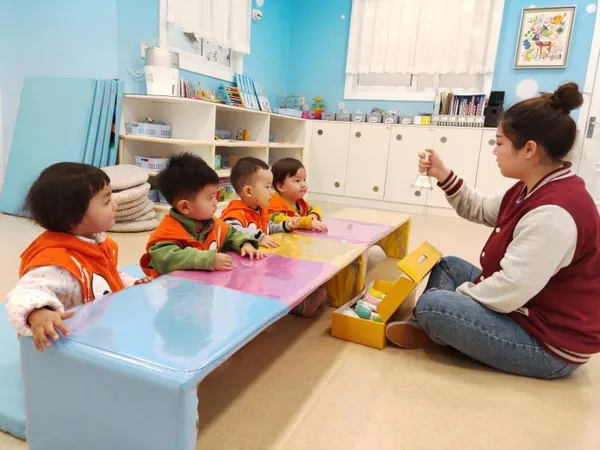Relationship conflict is an inherent part of human interactions, especially in close and intimate relationships. Whether it’s with a partner, family member, friend, or colleague, differences in opinions, values, and emotions often lead to disagreements, misunderstandings, and sometimes even tension. But what exactly is relationship conflict, and why does it arise? More importantly, how can it be effectively managed or resolved? This article delves into the concept of relationship conflict, its causes, the impact it has on relationships, and practical ways to address it in a healthy manner.
Understanding Relationship Conflict
At its core, relationship conflict refers to any disagreement or clash between individuals that results from differing needs, desires, expectations, or viewpoints. It can manifest in a variety of ways, ranging from minor disagreements to intense arguments or even full-blown fights. Conflict in relationships is natural, and in fact, it can be a sign of a relationship’s emotional investment. When two people care deeply about each other, it’s normal for them to have differences, whether those differences are about day-to-day issues like household chores or more significant matters like personal goals and values.
However, the way conflict is managed determines whether it strengthens or weakens the relationship. Unresolved or poorly managed conflict can lead to feelings of frustration, resentment, or even the eventual breakdown of a relationship. On the other hand, when handled constructively, conflict can provide an opportunity for growth, understanding, and greater emotional intimacy.
Causes of Relationship Conflict
There is no single cause of relationship conflict. It can arise from various factors, and often, multiple issues intersect to create a clash. Here are some common reasons why conflicts arise in relationships:
1. Communication Breakdown
One of the most common causes of relationship conflict is a breakdown in communication. When individuals don’t effectively communicate their thoughts, feelings, and needs, misunderstandings can occur. This might involve not listening to each other, failing to express emotions clearly, or misinterpreting each other’s intentions.
For example, one person may feel neglected because their partner hasn’t been giving them enough attention, but instead of communicating their feelings directly, they may act out in frustration. This leads to a cycle of miscommunication, where neither person fully understands the other’s perspective.
2. Differences in Values and Beliefs
Values and beliefs shape how we view the world and how we behave. When two people have differing values, it can create a source of tension. These differences could be about religion, politics, money, family, or other deeply-held beliefs. While these differences are not always problematic, they can become a point of contention if they are not acknowledged and addressed respectfully.
For example, if one partner values saving money and the other enjoys spending freely, this can lead to conflict regarding financial management in the relationship. If these differences are ignored, the disagreement can grow into a more significant issue.
3. Unrealistic Expectations
Expectations play a crucial role in any relationship. Sometimes, people enter relationships with unrealistic expectations about how their partner should behave or what the relationship should look like. These expectations can cause disappointment or frustration if they are not met.
For example, one partner may expect the other to always be available for emotional support, but if this expectation is not communicated or is unrealistic given the other person’s circumstances, it can result in conflict.
4. Personal Stressors
External stressors such as work pressure, financial struggles, health issues, or family problems can also affect relationships. When individuals experience stress in their personal lives, it often spills over into their relationships. Stress can cause irritability, impatience, or withdrawal, leading to friction between partners.
For instance, if one partner is stressed due to a demanding job and doesn’t communicate that to the other, it may appear that they are emotionally distant or uninterested, which can cause tension.
5. Emotional Needs and Intimacy
Emotional intimacy is a key aspect of any close relationship. When one partner feels emotionally unfulfilled or unsupported, it can result in conflict. Issues like feeling neglected, unloved, or misunderstood can create emotional distance and fuel arguments.
This type of conflict often arises when one person desires more affection, attention, or understanding than the other is able or willing to give. Over time, these emotional needs can accumulate and lead to resentment.
6. Power Struggles
Conflict can also arise from struggles for power or control within a relationship. One person may want to dominate decision-making or impose their will on the other. This can create a power imbalance that leads to resentment, especially if one partner feels that they are being controlled or silenced.
Power struggles are common in relationships where one person feels a need to be “right” or in control of the relationship dynamics, which can result in tension and conflict.
The Impact of Relationship Conflict
While conflict is inevitable, its impact on a relationship depends largely on how it is handled. When conflict is not addressed effectively, it can cause long-term damage to a relationship. Some potential negative effects of unresolved conflict include:
1. Emotional Distance
When conflicts are not resolved, they can cause emotional distance between partners. Instead of feeling close and connected, individuals may begin to feel isolated or misunderstood. This emotional distance can reduce the intimacy and trust in the relationship, making it harder to resolve future conflicts.
2. Resentment and Anger
Over time, unresolved issues can lead to feelings of resentment and anger. If one person feels that their needs are continually ignored or their perspective is dismissed, they may harbor negative feelings toward their partner. This unresolved anger can fester and lead to bitterness, making it harder to repair the relationship.
3. Decreased Relationship Satisfaction
Ongoing conflict without resolution can lead to decreased satisfaction with the relationship. Partners may feel frustrated, unhappy, or unfulfilled, which can make them question the relationship’s future. High levels of conflict are often correlated with lower levels of relationship satisfaction, especially when the conflict remains unresolved.
4. Breakdown of Communication
Frequent unresolved conflicts can lead to a breakdown in communication, as individuals may become reluctant to discuss issues for fear of more arguments. This creates a vicious cycle where communication becomes more strained, leading to further misunderstandings and frustration.
5. Potential for Relationship Breakdown
If conflict is persistent and not addressed in a healthy way, it can eventually lead to the breakdown of the relationship. This may manifest as separation or divorce in romantic relationships or estrangement in familial or platonic relationships. In extreme cases, unresolved conflict can erode the emotional foundation of a relationship to the point where it is no longer salvageable.
How to Address Relationship Conflict
While conflict in relationships is natural, it is crucial to manage it constructively to prevent harm to the relationship. Here are some strategies to address and resolve relationship conflict:
1. Open and Honest Communication
Effective communication is essential in resolving conflict. When a disagreement arises, it’s important to express your thoughts and feelings clearly and respectfully. Avoid blaming or accusing language, and instead, focus on “I” statements (e.g., “I feel frustrated when…”) to communicate your perspective without placing blame.
Active listening is also crucial. Give your partner the opportunity to express their thoughts without interrupting, and show empathy by validating their feelings. When both partners feel heard and understood, it is easier to find common ground.
2. Stay Calm and Composed
During a conflict, it’s easy for emotions to escalate. However, losing control of your emotions can make the situation worse. Take a step back if needed, and try to stay calm. If the conversation becomes too heated, consider taking a break and resuming the discussion once both partners have had time to cool down.
3. Focus on Solutions
Rather than getting caught up in blaming each other for the conflict, focus on finding a solution. Collaboratively work together to understand the underlying issues and agree on actions that can be taken to resolve the disagreement. Problem-solving approaches are more likely to lead to resolution than dwelling on past mistakes.
4. Seek Compromise
In many cases, conflict arises from differences in needs or desires. Rather than insisting on getting your way, try to find a middle ground. Compromise doesn’t mean sacrificing your values, but it involves being flexible and finding a solution that works for both parties. This can help strengthen the relationship and foster mutual respect.
5. Understand Each Other’s Perspectives
Take time to understand your partner’s point of view. Sometimes, conflicts arise because one person feels misunderstood. By genuinely trying to see things from your partner’s perspective, you may gain insights that make it easier to resolve the conflict and prevent it from recurring.
6. Seek Professional Help
If conflicts continue to escalate or if you’re struggling to resolve issues on your own, consider seeking the help of a relationship counselor or therapist. Professionals can provide guidance and tools for improving communication, resolving conflict, and strengthening the relationship.
Conclusion
Relationship conflict is an inevitable part of human connections, but it doesn’t have to lead to negative outcomes. By understanding the root causes of conflict, recognizing its impact, and adopting healthy communication and resolution strategies, couples and individuals can turn conflict into an opportunity for growth and deeper connection. Conflict, when managed constructively, can strengthen relationships, improve mutual understanding, and enhance emotional intimacy. Ultimately, it’s not the presence of conflict that matters, but how we handle it that determines the health and longevity of our relationships.
Related topics:




















